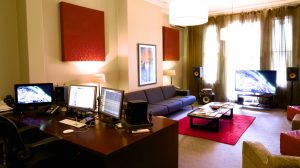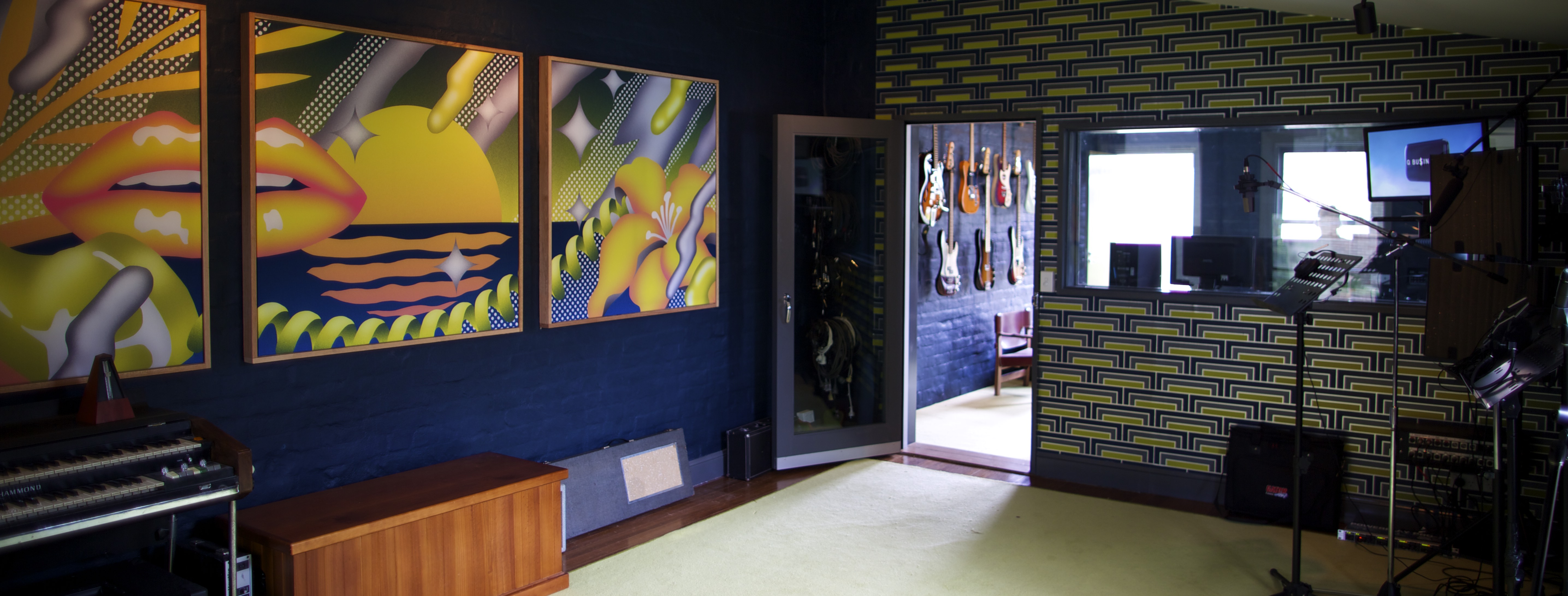In today’s fast-paced digital media landscape, the demand for media content of all kinds is exponentially growing day-by-day. With production timelines accelerated and media industry employees clocking in countless overtime hours, the job can take toll on employees’ health, happiness and creativity.
Boutique music and sound shop Nylon Studios not only prevents employee burnout but also fosters creativity through their cross-pacific studio offerings.
Studio locations in NYC and Sydney provide for a virtual around-the-clock production model without pushing employees to work overtime. Tight deadlines and turnarounds that the industry increasingly demands are met as the Sydney studio begins its work day just as the New York office winds up their day.
This business model bucks the industry standards to rush to meet production deadlines at all costs and allows employees at both locations to prioritize their families and health and return to work refreshed and creatively rejuvenated.
Global Executive Producer Hamish Macdonald tells DIVERGE more:
 Where did the idea for the “overnight shift” come from? The idea actually arose from the desire to search out the best composers with differing sensibilities from around the world, and when our search led to talent in New York and the States as a whole, we saw the hugely advantageous scenario behind having two equally weighted teams of talent on either side of the world answer the brief.
Where did the idea for the “overnight shift” come from? The idea actually arose from the desire to search out the best composers with differing sensibilities from around the world, and when our search led to talent in New York and the States as a whole, we saw the hugely advantageous scenario behind having two equally weighted teams of talent on either side of the world answer the brief.
How was it received? The structure has been received incredibly well, and by no more so than those creatives and producers in jobs with a quick turnaround. No matter the deadline, we offer our composers from both Australia and America, so every day we’re working a double shift, but at a considered time and pace that is required to produce truly great tracks. PLEASE NOTE: This is not a request to only offer us jobs with ridiculous timeframes….although we don’t shy away!
How long has Nylon Studios been doing this? Over eight years now. Our Sydney studio opened in 2002, and our New York studio in late 2008 and has been growing steadily ever since and onto into the future!
Why is this great so employees aren’t overworked and exhausted? As everyone knows, or should know, you should not force creativity…..but we live in the real world and time is often against us. Therefore we maximize the time our composers have to answer a brief. Whilst other studios have the days allocated, we double this by having both teams in different timezones answering the one brief and working together to the greater good of the creative.
So whilst our New York family sleeps, our Sydney team is awake, off their surfboards and working; bringing a fresh perspective of tracks, instrumentation, references, sound design and/or mixing to the project, and vice versa.
Advice for others that want to follow?
Don’t, we’ve mastered it already!
For those who say it’s too expensive, what would your response be?
It’s quite the opposite in fact. We have a transparent company, and all our staff are part of the same team and structure, so we lose nothing by including all our composers in each project and increase our efficiencies, so therefore our clients gain everything.
How can this increase creativity?
As touched on above, the more time given to craft a piece of music the better and we maximize what time there is on every job. On top of that, collaboration between great creatives drives a better result, and as we answer each brief as one team, our work ends up the better for it.
How does this affect client happiness/retention?
We’re very blessed to have a large number of loyal clients, who I’m proud to say we’ve made happy over the years and who continue to see the benefits of the way we work. Most importantly though, they appreciate the staff we have and their commitment to producing nothing but great work.
Additional thoughts?
Cross pacific sensibilities. Artists develop their talents by learning from a multitude of factors; from musical influences, to school mates, to band members, to the world around them and everything in between. This leads to the obvious: that no two musicians are the same. Therefore, when you have a multitude of composers answering the exact same brief, but with such varied sensibilities, backgrounds and influences, you end up with a wealth of fresh perspectives on tracks, that often surprise and go final.


